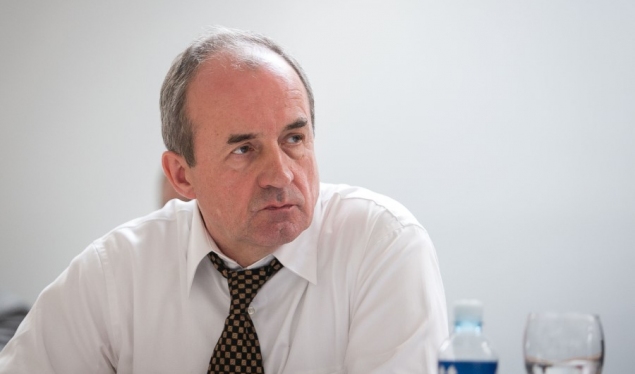The resumption of talks between Kosovo and Serbia have been announced to take place on June 27 in Washington. In an exclusive interview with KosovaPress, Janusz Bugajski, an American expert at the Center for European Policy Analysis, says Brussels is afraid that the United States could persuade both sides to sign an agreement that would destabilize the region through exchanges of territory and border changes.
According to him, the notion of territorial exchanges is a smokescreen designed largely by Belgrade. In this interview, he also talks about the possibility of Russia’s interference in the dialogue process, adding that, conflicts in the Balkans serve Putin’s geopolitical goals.
Full interview:
1. Mr. Bugajski, you have a long career that has dealt with political and diplomatic developments in the Balkan region, we are interested in your opinion on what you expect to happen on June 27 at the White House.
Bugajski: The White House meeting will be an occasion to formally restart the talks between Kosova and Serbia with full U.S. support. The Trump administration is seeking a final solution even though no one is expecting a major breakthrough on June 27. Ideally, the White House wants an agreement to be reached by September. Maybe there will also be a promise that both sides will return to the White House to sign an agreement if one is reached over the summer.
2. Today we have developments with an interesting dynamic here in Kosovo, in Pristina is the special envoy of the European Union for negotiations between Kosovo and Serbia, but it seems that the authorities here are not very enthusiastic, what is your opinion, a? it is likely in future that the country of negotiations will be Brussels or has finally moved to Washington.
Bugajski: There is a rift between the US and EU over the dialogue. Washington is frustrated by the slow progress of Brussels in restarting the talks and failing to push both sides toward resolution. Brussels is fearful that the US may convince both sides to sign an agreement that could further destabilize the region by including land swaps and border changes. Clearly both Prishtina and Belgrade view the US as the stronger mediator although their long-term prospects are with the EU.
3. Should Kosovo be under the fever of the outcome of the June 27 meeting, or perhaps be relaxed about the fact that the meeting is being held in (Washington), the most beloved place for Kosovo Albanians?
Bugajski: Two things are important for Kosova in the White House meeting – a united political front and a clear presentation of Kosova’s position. Prime Minister Hoti laid out the basic principles at an important recent speech at the Academy of Arts and Sciences. Serbia’s attempts to unilaterally challenge Kosova’s independence are unacceptable if the talks are to have results. This must be clearly stated in Washington.
4. How do you see Russia in this case, will there be an effort to play a role, and can it influence the authorities in Belgrade to maintain a position that can suit Russia in relation to its interests in relation to other crises especially for in terms of developments in the Middle East and Ukraine?
Bugajski: Moscow will certainly want to be involved in the negotiations but this would make any resolution even more difficult. For the Putin regime, maintaining conflicts in the Balkans serves its geopolitical goals by preventing NATO and EU expansion and enabling a policy of “divide and rule.”
5. Do you expect Russia to provoke tensions in the Balkans if they are ruled out as a factor?
Bugajski: Russia continues to provoke tensions throughout the region and in order to sabotage any meaningful agreement between Serbia and Kosova it could attempt to engineer various provocations. This could include a political assassination, the staging of inter-ethnic violence, a coup plot (as in Montenegro), or by encouraging the break-up of states (as in Bosnia-Herzegovina).
6. Today, the President of Kosovo said in Pristina that the issue of territories will not be negotiated in Washington. Do you see this as something that has ended?
Bugajski: The President and government in Prishtina need to speak with one voice. The notion of territorial exchanges are a smokescreen designed largely by Belgrade to trap internationals and even some Kosovar politicians into believing that they will enhance bilateral relations and result in “normalization.” There cannot be any secret deals over territory between Belgrade and Prishtina, as this will damage Kosova’s interests.
7. What reflection can there be for the European future of the Balkans, if the epilogue of the negotiations held in Washington may not be in harmony with Brussels’ positions on dialogue?
Bugajski: If Prishtina and Belgrade forge a genuine agreement that leads to bilateral recognition, the EU will certainly not oppose this. For its part, the EU must lean on the five states that have still not recognized Kosova to undercut Serbian and Russian revisionism by finally recognizing Kosova. This would provide a boost for any bilateral agreement between Prishtina and Belgrade.
8. And finally, let’s say what will June 30 look like in the relations between Kosovo and Serbia?
Bugajski: In the best case scenario both sides will realize that the US is serious in helping to mediate an agreement in which two neighboring states recognize each other’s independence and sovereignty. However, because Serbia is unlikely to have a sudden revelation, the summer months will be critical in capitalizing on America’s renewed involvement. /KosovaPress/




